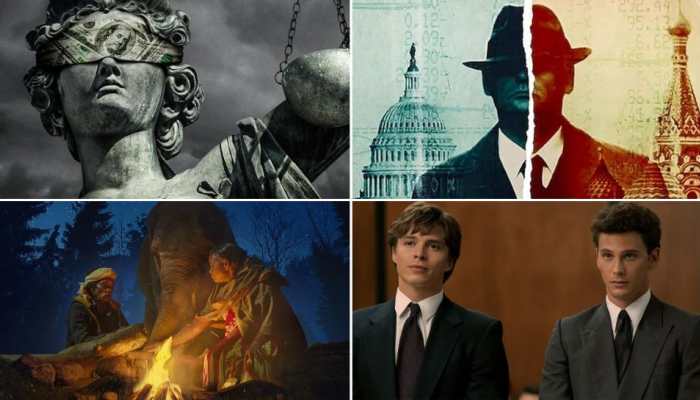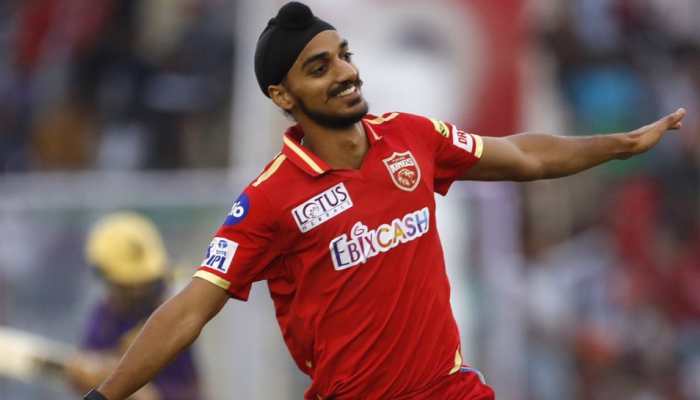The role of social media in elections
The recently concluded General Elections are special in more ways than one.
Trending Photos
)
 Shobhika Puri
The recently concluded General Elections are special in more ways than one. The emergence of the Aam Aadmi Party, the increasing participation of the common man and the shift of focus from casteism to development, are all welcome changes. Not only has the mood of the nation vis-a-vis the elections changed, but the medium has also changed drastically with the advent of the social media. The Internet has been around for the past three elections, but it is only this time that its impact is being felt.
Though Indian politicians are way behind their global counterparts from countries like the US or the UK in terms of their engagement with the social media, their progress, however abysmally low, is worth appreciating. In a country where two-thirds of the population lives in the rural areas with little or no access to the Internet, or in a country where the Internet penetration is as low as 12 percent, this change is a marked improvement. In spite of resistance from the old guard that relies on the face-to-face connect only, the social media has played a significant role in these elections.
So, what value has the social media added to the elections? What is the potential value that it can add to the future elections? Why is it increasingly being used by the political parties? Why is the public at large embracing it in making their electoral decisions?
Social media is an excellent tool for the politicians to get ‘social’. Not only can they interact with their potential voters, they can get instant feedback. Whenever a politician needs to express an opinion, or clarify some myths surrounding him/her, she/he does not have to depend on the press to carry his/her message. A few words on the social media can do the trick. The message can be as brief or as eloquent as the politician wishes, and it does not have to go through the editorial desk.
The immediacy of a message helps keep the politicians relevant. If there is a riot or a natural disaster or a terrorist attack or an insensitive remark by an opponent, politicians can use the social media to comment and stay relevant. Another added advantage is that they get to stay in the news, thereby occupying the voter mind space.
An oft-repeated argument made against the usage of social media in elections is that the rural population that forms the major chunk of the voter base, does not have access to the Internet or does not understand the social media. However, the beauty of the social media is that it can reach such remote voters indirectly as well. Whatever is discussed on the social media gets picked up by the press or the newsmakers or the opinion makers, who in turn discuss the same topics and influence the people who do not have access to the Internet. Therefore, whether directly or indirectly, the social media manages to reach most of the voters.
Politicians who use the social media tend to attract the middle class or the urban population or the youth. Such politicians send across a strong message that they are moving with the times and convey the promise of bringing India at par with its developed counterparts. Narendra Modi is an excellent example of this. His change of image from being a communalist to a development-oriented person, owes a lot to the social media. When people like the industrialists or the investors or the youth see him participate in a Google Hangout or be regular with Tweeting, they see in him somebody who holds a promise of developing India.
An interesting development in the social media space is that it is increasingly being seen as a barometer of one’s popularity. The number of Facebook fans or likes, or the number of Twitter followers or re-tweets, the number of comments on a blog, etc are being used to gauge one’s popularity or acceptance by the people at large.
No matter what the critics or the old guard might say, the social media is here to stay. When the likes of LK Advani, an octogenarian whose party until a few decades back was sceptical of computers themselves, joins the blogging community, what better endorsement can the social media get?
The role, reach and influence of the social media can only increase in the elections to come. As they say, nothing is stronger than an idea whose time has come. And, social media is that idea for now!
(Shobhika Puri is a freelance writer)
Shobhika Puri
The recently concluded General Elections are special in more ways than one. The emergence of the Aam Aadmi Party, the increasing participation of the common man and the shift of focus from casteism to development, are all welcome changes. Not only has the mood of the nation vis-a-vis the elections changed, but the medium has also changed drastically with the advent of the social media. The Internet has been around for the past three elections, but it is only this time that its impact is being felt.
Though Indian politicians are way behind their global counterparts from countries like the US or the UK in terms of their engagement with the social media, their progress, however abysmally low, is worth appreciating. In a country where two-thirds of the population lives in the rural areas with little or no access to the Internet, or in a country where the Internet penetration is as low as 12 percent, this change is a marked improvement. In spite of resistance from the old guard that relies on the face-to-face connect only, the social media has played a significant role in these elections.
So, what value has the social media added to the elections? What is the potential value that it can add to the future elections? Why is it increasingly being used by the political parties? Why is the public at large embracing it in making their electoral decisions?
Social media is an excellent tool for the politicians to get ‘social’. Not only can they interact with their potential voters, they can get instant feedback. Whenever a politician needs to express an opinion, or clarify some myths surrounding him/her, she/he does not have to depend on the press to carry his/her message. A few words on the social media can do the trick. The message can be as brief or as eloquent as the politician wishes, and it does not have to go through the editorial desk.
The immediacy of a message helps keep the politicians relevant. If there is a riot or a natural disaster or a terrorist attack or an insensitive remark by an opponent, politicians can use the social media to comment and stay relevant. Another added advantage is that they get to stay in the news, thereby occupying the voter mind space.
An oft-repeated argument made against the usage of social media in elections is that the rural population that forms the major chunk of the voter base, does not have access to the Internet or does not understand the social media. However, the beauty of the social media is that it can reach such remote voters indirectly as well. Whatever is discussed on the social media gets picked up by the press or the newsmakers or the opinion makers, who in turn discuss the same topics and influence the people who do not have access to the Internet. Therefore, whether directly or indirectly, the social media manages to reach most of the voters.
Politicians who use the social media tend to attract the middle class or the urban population or the youth. Such politicians send across a strong message that they are moving with the times and convey the promise of bringing India at par with its developed counterparts. Narendra Modi is an excellent example of this. His change of image from being a communalist to a development-oriented person, owes a lot to the social media. When people like the industrialists or the investors or the youth see him participate in a Google Hangout or be regular with Tweeting, they see in him somebody who holds a promise of developing India.
An interesting development in the social media space is that it is increasingly being seen as a barometer of one’s popularity. The number of Facebook fans or likes, or the number of Twitter followers or re-tweets, the number of comments on a blog, etc are being used to gauge one’s popularity or acceptance by the people at large.
No matter what the critics or the old guard might say, the social media is here to stay. When the likes of LK Advani, an octogenarian whose party until a few decades back was sceptical of computers themselves, joins the blogging community, what better endorsement can the social media get?
The role, reach and influence of the social media can only increase in the elections to come. As they say, nothing is stronger than an idea whose time has come. And, social media is that idea for now!
(Shobhika Puri is a freelance writer)Stay informed on all the latest news, real-time breaking news updates, and follow all the important headlines in india news and world News on Zee News.
Advertisement
Live Tv
Advertisement







)
)
)
)
)
)
)
)
)
)
